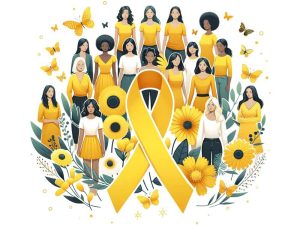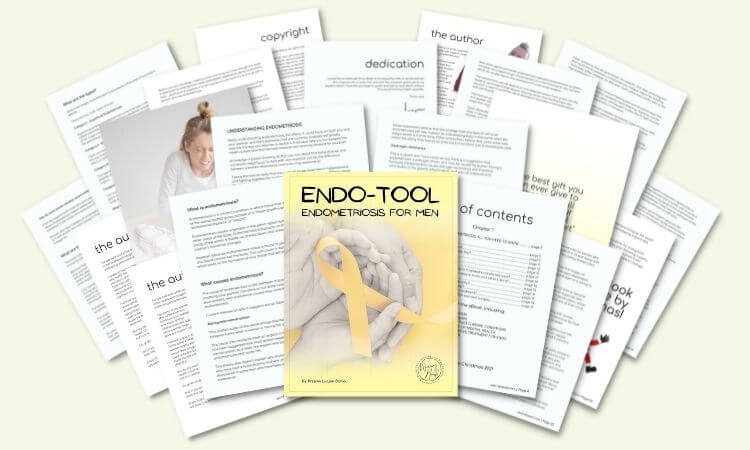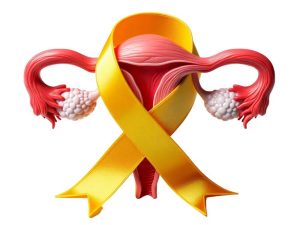Endometriosis and Men’s Support Challenges
When it comes to endometriosis and men’s support challenges, there is little to no information for us – men. This is the primary reason why I run this blog.
Endometriosis is a medical condition characterized by the presence of endometrial-like tissue outside the uterus. While it primarily affects individuals with female reproductive systems, it can also have an impact on men, who may face challenges in providing emotional support to their partners dealing with the condition. These challenges can include understanding the physical and emotional toll of endometriosis, offering empathy and practical assistance, and maintaining open communication to provide effective support.
- Endometriosis and Men's Support Challenges
- Impact on Relationships and Intimacy
- Impact on Family Planning and Parenting
- Work and Financial Challenges
- Emotional Impact on Male Partners
- Lack of Recognition and Support
- Couple-Centered Treatment Approach
- Need for Information and Support Resources
- Conclusion on Endometriosis and Men's Support Challenges
Endometriosis and Men’s Support Challenges
When we talk about endometriosis, we often focus on the impact it has on women. However, it’s essential to recognize that men also face unique challenges when their partners are affected by this chronic gynecological condition.
A qualitative study called the ENDOPART study shed light on the experiences of men whose partners have endometriosis. This study involved 22 women with endometriosis and their male partners in the UK, providing valuable insights into the support challenges faced by men.
Men reported that endometriosis significantly affects multiple aspects of their lives, including sex and intimacy, family planning, work, finances, and emotions. They often experience feelings of helplessness, frustration, worry, and anger as they witness their partners’ struggles with the condition.
Despite the profound impact on men’s lives, there is a lack of professional and societal recognition of their struggles. This marginalizes male partners in endometriosis care and hinders their access to the support they need.
There is a growing need for a more couple-centered approach to endometriosis treatment that takes into account the perspectives and needs of both the woman with endometriosis and her male partner. Additionally, the development of specific support resources, such as support groups and educational materials, aimed at men is crucial in helping them cope with the challenges of endometriosis.
Throughout this article, we will explore the various ways in which endometriosis impacts men and the importance of recognizing and addressing their support challenges. From the strain on relationships and intimacy to the emotional toll and lack of recognition, understanding the male partner’s perspective is vital in providing comprehensive endometriosis care.
What do YOU Know about Endometriosis?
This quiz focuses on the basic facts about endometriosis, helping to spread awareness and dispel common myths.

Impact on Relationships and Intimacy
Endometriosis can have a significant impact on relationships and intimacy. The chronic pain and other symptoms associated with endometriosis can strain intimate relationships, leading to a negative impact on sexual function and a potential breakdown of the relationship. Women with endometriosis often experience disruptions in their day-to-day lives, which can affect their overall sense of connectedness and intimacy with their partners.
Research has shown that women with endometriosis face challenges in their sexual relationships, including decreased sexual desire, pain during intercourse, and difficulties in achieving orgasm. These physical symptoms can lead to emotional distress for both partners and can strain the intimacy and closeness of the relationship.
| Impact on Relationships and Intimacy | Findings |
|---|---|
| Decreased sexual desire | Women with endometriosis may experience a decrease in their sexual desire due to physical pain and other symptoms. |
| Pain during intercourse | Endometriosis can cause pain during sexual intercourse, leading to a strain on the intimate relationship. |
| Difficulties in achieving orgasm | Women with endometriosis may face challenges in achieving orgasm, which can affect their sexual satisfaction and overall relationship satisfaction. |
It is important to recognize and address the impact that endometriosis can have on relationships and intimacy. Open communication, empathy, and understanding between partners are crucial in navigating these challenges. Seeking professional help and support, such as couples therapy or sex therapy, can also be beneficial in maintaining a healthy and fulfilling intimate relationship despite the challenges posed by endometriosis.
Impact on Family Planning and Parenting
Endometriosis can have a significant impact on family planning and parenting. Women with endometriosis may experience difficulties in conceiving, which can put strain on couples who desire to have children. This condition, characterized by the presence of endometrial tissue outside the uterus, can lead to subfertility or difficulties in getting pregnant.
For couples affected by endometriosis, the journey to parenthood may involve exploring alternative family planning options such as fertility treatments or adoption. The challenges and uncertainties associated with fertility can take an emotional toll on both partners, adding an extra layer of complexity to the already challenging experience of living with endometriosis.
It is important for healthcare professionals to provide support and guidance to couples facing these challenges. Education about the impact of endometriosis on fertility, as well as accessible and inclusive resources, can help couples navigate the complex decisions and emotions associated with family planning. By acknowledging and addressing the specific needs of couples affected by endometriosis, we can offer them the support they need to make informed choices and navigate their journey to parenthood with confidence.
Alternative Family Planning Options for Couples with Endometriosis
Endometriosis and Men’s Support Challenges table 2
These options provide couples with choices and alternatives for building their families, allowing them to make decisions that align with their personal circumstances and aspirations. However, it is crucial to acknowledge that the decision-making process can be complex and emotionally challenging, and couples may benefit from the support of healthcare professionals and mental health specialists who can provide guidance and emotional support throughout their journey.
Work and Financial Challenges
The impact of endometriosis extends beyond personal and relationship aspects, affecting the work and finances of couples dealing with the condition. Women with endometriosis may face difficulties in maintaining employment due to the unpredictable nature of their symptoms, leading to financial strain on the household. As a result, male partners often find themselves taking on additional support tasks and roles to compensate for the impact of the condition on their partners’ ability to work.
Endometriosis can affect the careers of both women and their male partners. The unpredictability of symptoms such as chronic pain, fatigue, and heavy menstrual bleeding often leads to frequent absences from work or reduced productivity. This can result in missed opportunities for career advancement and financial instability.
Furthermore, the financial implications of endometriosis can be significant. Medical expenses, including diagnostic tests, treatments, and medications, can place a financial burden on couples. In addition, fertility treatments or alternative family planning options may be necessary, further adding to the financial strain.
Emotional Impact on Male Partners
Endometriosis can have a profound emotional impact on male partners. Witnessing their partners’ struggles with the condition can evoke a range of emotions, including feelings of helplessness, frustration, worry, and anger. These emotions can significantly impact the mental well-being and overall quality of life for men.
Men often experience a sense of helplessness as they see their partners endure chronic pain and other debilitating symptoms. They may feel frustrated by the lack of effective treatment options and the challenges of managing the condition’s impact on daily life. Additionally, the uncertainty surrounding the future, including concerns about fertility and family planning, can lead to worry and anxiety.
Anger is another common emotion experienced by male partners of women with endometriosis. It can arise from a sense of injustice, as they witness the physical and emotional toll the condition takes on their loved ones. The frustration of not being able to alleviate their partners’ pain or find a cure adds to the emotional burden.
| Emotions Experienced by Male Partners of Women with Endometriosis | Impact on Well-being |
|---|---|
| Helplessness | Affects mental health and overall quality of life |
| Frustration | Causes stress and dissatisfaction |
| Worry | Creates anxiety about the future |
| Anger | Produces feelings of injustice and frustration |
Addressing the emotional impact of endometriosis on male partners is crucial for their well-being and the overall health of the couple. It is important to provide support and resources that acknowledge and validate their emotions, such as counseling services and support groups specifically tailored to male partners. By recognizing and addressing their emotional needs, we can help them navigate these challenges and strengthen the bond within the couple.
Lack of Recognition and Support
When it comes to endometriosis, male partners often find themselves facing a lack of recognition and support. Unfortunately, the impact of endometriosis on male partners is often overlooked by healthcare professionals and society as a whole. This lack of recognition and support can leave male partners feeling marginalized and isolated in their efforts to support their partners through the challenges of this chronic condition.
Awareness and understanding are key in addressing the needs of male partners in endometriosis care. By recognizing the unique struggles that male partners face, healthcare professionals can provide the necessary resources and support to help them navigate the complexities of this condition. This includes acknowledging the emotional toll that endometriosis can have on male partners and providing them with the tools they need to cope with feelings of helplessness, frustration, worry, and anger.
Furthermore, it is essential to develop support services and resources specifically tailored to the needs of male partners. These resources can provide education, guidance, and a sense of community for male partners who often feel alone in their experiences. Support groups, for example, can offer a platform for couples to connect with others who are going through similar challenges and provide a safe space for sharing experiences, asking questions, and finding support.
Couple-Centered Treatment Approach
The findings from the ENDOPART study emphasize the importance of a couple-centered treatment approach for endometriosis. As healthcare practitioners, we need to adopt a biopsychosocial approach that considers the needs and experiences of both the woman with endometriosis and her male partner. This approach goes beyond medical treatment alone and encompasses psychological and social support for both individuals within the couple.
By involving male partners in the treatment process, we can create a more inclusive and holistic approach to endometriosis care. Partner involvement not only enhances the overall effectiveness of treatment but also provides valuable support for both individuals. It allows partners to share the burden and navigate the challenges of endometriosis together.
Recognizing the integral role of male partners and promoting their involvement in the treatment process is crucial. This couple-centered approach ensures that the unique perspectives, concerns, and needs of both partners are addressed and integrated into the treatment plan.
| Benefits of a Couple-Centered Treatment Approach | How it Enhances Endometriosis Care |
|---|---|
| 1. Shared decision making | Empowers couples to make informed choices about treatment options |
| 2. Improved communication | Facilitates open and effective communication between partners and healthcare providers |
| 3. Increased support | Provides emotional and practical support for both partners throughout the treatment journey |
| 4. Enhanced treatment adherence | Encourages both partners to actively participate in treatment plans, leading to better compliance and outcomes |
Incorporating a couple-centered treatment approach not only improves the quality of care for individuals with endometriosis but also strengthens the relationship between partners. It acknowledges the impact of endometriosis on both partners and fosters a sense of unity in navigating the challenges of this chronic condition.
Need for Information and Support Resources
The ENDOPART study has shed light on the challenges faced by male partners of women with endometriosis. It is evident that there is a significant lack of information and support resources specifically aimed at partners and couples affected by this condition. Men often struggle to find the guidance and understanding they need to navigate the complexities of endometriosis alongside their partners.
Endometriosis resources for couples are essential in providing education, awareness, and practical advice to help partners understand and cope with the impact of the condition on their relationship. These resources should cover a range of topics, including the physical and emotional aspects of endometriosis, strategies for supporting a partner with the condition, and guidance on maintaining intimacy and communication.
Additionally, endometriosis support groups can offer a valuable platform for couples to connect with others who are going through similar experiences. These support groups provide a safe and empathetic space for partners to share their challenges, exchange advice, and find solace in knowing that they are not alone in their journey.
Examples of Endometriosis Support Resources
| Resource Name | Description | Website |
|---|---|---|
| Endometriosis Association | An organization dedicated to providing information, support, and advocacy for individuals with endometriosis and their loved ones. | www.endometriosisassn.org |
| Endometriosis UK | A charity that offers information, support, and a helpline for people affected by endometriosis, including partners and family members. | www.endometriosis-uk.org |
| Online Support Communities | Online forums and communities where partners can connect with others, share experiences, and seek advice. | N/A |
By providing comprehensive information and support resources, we can empower partners to better understand endometriosis and actively participate in the care and well-being of their loved ones. It is crucial to recognize and address the unique challenges faced by male partners and ensure they have access to the resources they need to navigate the complexities of endometriosis as a couple.
If you want to learn more about endometriosis, I wrote an “Endo-Tool, Endometriosis for Men” e-Book.
You can get the 1st Chapter of the e-Book for FREE, and if you like it, you’ll get a Whopping 33% Discount on the Whole Book, plus discounts on other helpful tools. You have nothing to lose but a lot to gain!
The first chapter alone contains all the comprehensive medical knowledge about endometriosis, including:
- What is endometriosis?
- What are the symptoms?
- What causes endometriosis?
- What does endometriosis look like?
- What are the stages?
- What are the types?
- What is adenomyosis and how is it related to endometriosis?
- Why do some women develop severe endo and others don’t?
- Does endometriosis cause infertility?
- How is endometriosis diagnosed?
- Do types and stages affect the treatment?
- Recurrence of endometriosis after excision surgery.
FREE Chapter of “Endo-Tool”
Endometriosis e-Book for Men

Conclusion on Endometriosis and Men’s Support Challenges
As I reflect on the impact of endometriosis on men, it becomes clear that there are significant support challenges that need to be addressed. Coping with endometriosis as a male partner requires a deep understanding of the condition and its effects on both physical and emotional well-being. It is essential to acknowledge the unique perspective of male partners and the role they play in supporting their loved ones.
Endometriosis affects not only the women who have it, but also the relationships and lives of those who care for them. From the strain on intimate relationships to the challenges in family planning and parenting, men face a multitude of obstacles that often go unrecognized. The impact on work and finances further adds to the burden and stress faced by couples. It is crucial to provide resources and support services that cater specifically to the needs of male partners.
By adopting a more comprehensive approach to endometriosis care, we can ensure that both women and men receive the support they need. Recognition and understanding of the male partner’s perspective are essential in developing effective treatment plans and support resources. From information and education to support groups, these resources can empower couples to navigate the challenges of endometriosis together.
As we move forward, it is my hope that the healthcare community and society as a whole will recognize the importance of supporting male partners in the context of endometriosis. By providing the necessary care, resources, and understanding, we can create a more compassionate and inclusive approach to endometriosis care. Together, we can enhance the well-being and quality of life for couples affected by this chronic condition.
Endometriosis symptom identification quiz!
Endometriosis Symptom Identification Quiz.
This quiz consists of 15 questions and will test your knowledge of endometriosis symptoms.



About Me
Hi, I’m Lucjan! The reason why I decided to create this blog was my beautiful wife, who experienced a lot of pain in life, but also the lack of information about endometriosis and fibromyalgia for men…
